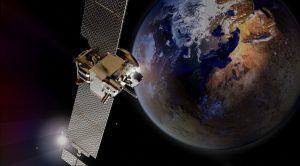Category Archives: Space
How to Find the Best UK Casino Sites – A Simple Guide
- Posted by Steve Philips
- Posted on January 29, 2018
- Space
- Comments Off on How to Find the Best UK Casino Sites – A Simple Guide
In his book, The Equation that Couldn’t Be Solved, Mario Livio discusses the mathematics of symmetry. In true Livio style, he simplifies explanations for easy understanding of complex theories and ideas. For instance, he draws upon examples of popular casino games to explain symmetry under permutations. In a nutshell, he describes how roulette is a game of chance, where each player has the same chance of winning or losing. In blackjack, on the other hand, strategy plays a key role and can make a big difference to a player’s chances of profits.
 This explanation got me to thinking about casino games in general. If you want to try using a strategy to play blackjack online, how do you go about finding the best casino to play at? If you would rather rely on chance and play games such as roulette and slots, likewise, how can you identify the top operators? As such, in this article, we will move off on a tangent from Livio and look more closely at how to find the best online casino sites for UK players.
This explanation got me to thinking about casino games in general. If you want to try using a strategy to play blackjack online, how do you go about finding the best casino to play at? If you would rather rely on chance and play games such as roulette and slots, likewise, how can you identify the top operators? As such, in this article, we will move off on a tangent from Livio and look more closely at how to find the best online casino sites for UK players.
For starters, be safe not sorry. A sentence that is used frequently, but never is it more relevant than when deciding on an online casino. To create your player account and play real money games, you will need to provide sensitive personal and financial data. It is therefore vital that the operator uses top-notch technical security to protect you. You also want reassurance that games are fair and that the casino operates responsibly. Always check for a valid licenced issued by the UK Gambling Commission. This confirms that the operator has met strict safety standards and independently proven the integrity of their games.
Once the validity of the casino has been verified, the next factor to consider is game selection. Be sure that the game selection has plenty of variety and range to cater to your needs. If you want to play blackjack or roulette, look out for a rich selection of tables with innovative and interesting variants. If slots are your game of choice, opt for casinos with many types of slots, with exciting features, big jackpots and superb graphical quality.
Once you’ve found a licenced casino, with a rich and varied game selection, the next step is to check out the bonus opportunities and promotions on offer. The best casinos offer not only generous welcome bonuses to reward you for joining, but they will also provide a loyalty scheme and regular promotions to reward loyal players. You should bare in mind that most welcome bonuses have certain conditions attached to them, including a wagering requirement, different weightings of games and a time limit. Check the small print before you accept a bonus to ensure that the conditions are favourable.
Whilst this is a solid start to identifying the best casinos, there are also valuable resources available online which can guide you in the right direction. For instance, you will find honest reviews of some of the best UK casinos at www.ukcasino.org.uk. As with Livio’s writing, you will find it simple to understand, straightforward and very informative!
Mario Livio’s Books
- Posted by Steve Philips
- Posted on December 11, 2017
- Space
- Comments Off on Mario Livio’s Books
If you go to Mario Livio’s Amazon page, you’ll find a whole lot of papers and documents released as part of the Space Telescope Science Institute Symposium Series. But you’ll also find six books written by Dr. Livio between 2000 and 2017. Books about a wide range from subjects, from space to mathematics, from history to psychology. But they’re not like most books of their kind – the author is able to easily explain complex and mind-numbing concepts, ideas, theories and facts in a way that’s extremely easy to understand and relate to. Let’s take a brief look at each of his books and see exactly what makes them special and why so many people around the world enjoy them.
The Accelerating Universe (2000)
 At the time of the book’s release (2000), the discovery that the Universe wasn’t contracting, but actually expanding – and rapidly, too – was a relatively new one, throwing a whole lot of theories and ideas about the universe that we had taken as fact into question. In his book “The Accelerating Universe”, Mario Livio takes various popular and not-so-popular theories about the cosmos, the universe and even the multiverse and explains them clearly to the reader without the use of jargons or etymology. Present throughout the book is the idea that theories can be classified as “beautiful” or not based on objective scientific principles, which, of course, Dr. Livio does for all of the theories found within.
At the time of the book’s release (2000), the discovery that the Universe wasn’t contracting, but actually expanding – and rapidly, too – was a relatively new one, throwing a whole lot of theories and ideas about the universe that we had taken as fact into question. In his book “The Accelerating Universe”, Mario Livio takes various popular and not-so-popular theories about the cosmos, the universe and even the multiverse and explains them clearly to the reader without the use of jargons or etymology. Present throughout the book is the idea that theories can be classified as “beautiful” or not based on objective scientific principles, which, of course, Dr. Livio does for all of the theories found within.
The Golden Ratio (2003)
While not too many people know exactly what it is, most have heard the term “golden ratio” used in one context or another, and it’s all thanks to Mario Livio’s book, which became an international bestseller that popularized the concept. The golden ratio, or “phi”, is an infinite number that’s roughly half of Pi. It can be found, in one way or another, all across the world, in both man-made structures and organic life. The Greek Parthenon, a snail’s shell and even the shape of a hurricane when viewed from space all adhere fantastically to the Golden Ratio, proving that this phenomenon is universal and highly fascinating. “The Golden Ratio” brought Dr. Livio’s name into the spotlight, and won the Peano Prize in 2003 International Pythagoras Prize in 2004, recognizing it as the best book about mathematics of that time.
The Equation That Couldn’t Be Solved (2006)
 This isn’t Dr. Livio’s most popular book, but it’s most certainly the one where, following the smashing success of “The Golden Ratio”, he further cemented his very particular style and tone. “The Equation That Couldn’t Be Solved” follows the story of the Quintic Function – a notably difficult equation that gave several mathematicians trouble before it was finally solved. Dr. Livio follows the lives of these people, giving us the biographical information and anecdotes we as readers require to understand their struggles. This mix of a narrative, mathematics and history is what has distinguished Dr. Livio’s books from all the others like them.
This isn’t Dr. Livio’s most popular book, but it’s most certainly the one where, following the smashing success of “The Golden Ratio”, he further cemented his very particular style and tone. “The Equation That Couldn’t Be Solved” follows the story of the Quintic Function – a notably difficult equation that gave several mathematicians trouble before it was finally solved. Dr. Livio follows the lives of these people, giving us the biographical information and anecdotes we as readers require to understand their struggles. This mix of a narrative, mathematics and history is what has distinguished Dr. Livio’s books from all the others like them.
Is God A Mathematician? (2010)
The reason why astronomers and astrophysicians know so much about the universe is not because they’ve been able to physically go to various planets and stars (like supernovas or black holes) and measure them the way that scientists examine objects on Earth. No, they calculate things like the mass of various planets or the distance between them based on math, which seems to be the one constant in the entire Universe, to the point where, if we ever make contact with an alien species, chances are the only thing we’ll have in common is math. With that said, the question remains – is math invented or discovered? “Is God A Mathematician” was extremely well-received, and was eventually adapted into an Emmy-nominated program called “The Great Math Problem”.
Brilliant Blunders (2014)
 Probably the most straightforward of Mario Livio’s books, and the one that’s lightest on mathematical and astronomical concepts. The only thing discussed in it are anecdotes about, arguably, the greatest scientists in history, like Einstein, Newton and Darwin… Or, more specifically, their failures. People tend to imagine these great men as infallible (there’s multiple stories online about some ordinary student who says something profound about life or the universe, only for the end of the story to reveal that his name was Albert Einstein), but that’s, obviously, extremely far from the truth. And reading the book narrated by someone who knows his stuff and is able to look at history from a modern perspective truly makes it obvious just how much these otherwise brilliant people were off the target on these subjects – and in some cases, they were REALLY wrong (like, for example, William Thomson – also known as Lord Kelvin – calculated the Earth’s age… And came about 50 times short).
Probably the most straightforward of Mario Livio’s books, and the one that’s lightest on mathematical and astronomical concepts. The only thing discussed in it are anecdotes about, arguably, the greatest scientists in history, like Einstein, Newton and Darwin… Or, more specifically, their failures. People tend to imagine these great men as infallible (there’s multiple stories online about some ordinary student who says something profound about life or the universe, only for the end of the story to reveal that his name was Albert Einstein), but that’s, obviously, extremely far from the truth. And reading the book narrated by someone who knows his stuff and is able to look at history from a modern perspective truly makes it obvious just how much these otherwise brilliant people were off the target on these subjects – and in some cases, they were REALLY wrong (like, for example, William Thomson – also known as Lord Kelvin – calculated the Earth’s age… And came about 50 times short).
Why? What Makes Us Curious (2017)
Dr. Livio’s latest book is about psychology, and thus may feel like a far cry from his previous work on space and mathematics… But, in an odd way, it’s related to every single scientific discovery ever made. After all, it’s our unnatural sense of curiosity – something that we don’t share with many other animals – that makes us look into the various phenomena that surround us on Earth and beyond and pushes us to create our own. In the book, Dr. Livio identifies various different types of curiosity, outlines studies discussing the subject and its connection to memory and learning and, true to his classic style, outlines historical anecdotes to prove how various scientists and researchers throughout history used their curiosity to fuel their scientific advances. Receiving praise from everyone, from various publications (such as the New York Times, which featured it on its pages) to accomplished scientists (like Nobel Prize winner Adam Reiss, who calls it a “fascinating quest to understand the origin and mechanisms of our curiosity”). As of the time of this writing, “Why” is brand new, so we can only wait and see what accolades it’s going to receive over its lifetime.
Who’s Mario Livio – The Life Of A Scientist
- Posted by Steve Philips
- Posted on December 4, 2017
- Space
- Comments Off on Who’s Mario Livio – The Life Of A Scientist
 Today, at the age of 72, it’s hard to imagine that Mario Livio may lack a single thing that a person might want out of life. He’s married to Sofie Livio, an established microbiologist at the University of Maryland, and has three children with her – Sharon, Oren and Maya. He worked at the Space telescope Science Institute (which operates the Hubble telescope) for fourteen years, and is currently involved in the American Association for the Advancement of Science. He has written six different books in the span of seventeen years, all of which became best-sellers and enjoyed critical and commercial success. He’s got a blog on the Huffington Post and a Twitter account with over 6,500 followers. At this point, it’s hard not to see Dr. Livio as someone living the American Dream, but what most people don’t know – and what he’s typically reluctant to discuss – is that he had to fight tooth and nail to get it.
Today, at the age of 72, it’s hard to imagine that Mario Livio may lack a single thing that a person might want out of life. He’s married to Sofie Livio, an established microbiologist at the University of Maryland, and has three children with her – Sharon, Oren and Maya. He worked at the Space telescope Science Institute (which operates the Hubble telescope) for fourteen years, and is currently involved in the American Association for the Advancement of Science. He has written six different books in the span of seventeen years, all of which became best-sellers and enjoyed critical and commercial success. He’s got a blog on the Huffington Post and a Twitter account with over 6,500 followers. At this point, it’s hard not to see Dr. Livio as someone living the American Dream, but what most people don’t know – and what he’s typically reluctant to discuss – is that he had to fight tooth and nail to get it.
Mario had the misfortune of being born to Jewish parents in Romania in 1945 – a time when most of Europe had a particularly unfavorable outlook on Jews. Both of his parents had to flee the country to avoid persecution when he was only a few months old, leaving him to live with his grandparents for the first five years of his life, which he rarely discusses, but has described as “Oliver Twist-like”. In 1950, Romanian Jews were pressured to leave the country, so he settled in Israel alongside his grandparents, reuniting with his mother. Upon maturing, he was forced to enlist in the Israeli Defense Forces (like every other young person living in Israel), serving for three years as a paramedic and then continuing to serve for 40 days each year until 1991. His military service saw him engage in three separate conflicts between 1967 and 1982, working in a mobile hospital that could be easily transported by boats or choppers (and then parachuted down to places that need it). During peaceful times, he pursued a bachelor’s degree in physics and mathematics at the Hebrew University of Jerusalem, a master’s in theoretical particle physics at the Weizmann Institute and eventually defended a Ph. D in theoretical astrophysics at Tel-Aviv University, beginning a ten-year career as a physics professor at the Technion – Israel Institute of Technology.
 In 1991, Dr. Livio received an offer from NASA to join the Space Telescope Science Institute as the head of the Archive Branch. Archival work, of course, isn’t exactly what most scientists dream to be doing at NASA, so in 1999 Dr. Livio began shifting his research, focusing on black holes, acceleration of mass, white dwarves, neutron stars and particularly on supernova explosions. He wrote about his discoveries and observations in his 2000 book “The Accelerating Universe”, which was praised by many as simplifying many complicated concepts in physics so that non-scientists could understand them without being condescended. Finding inspiration and a style that he felt he could call his own, the man began work on a second book, which eventually came out in 2003 titled “The Golden Ratio”. It did for mathematics what “The Accelerating Universe” had done for space, simplifying a lot of really complicated concepts and presenting them to the general public in a language most people could understand. The book was a huge hit, earning multiple accolades (such as the Peano Prize in 2003 International Pythagoras Prize in 2004) and proving once and for all that Mario Livio was just as skilled as a writer as he was as an astrophysicist. Over the next decade and a half, he would write four more books, finding success with each one. And while Dr. Livio retired from active duty at the Space Telescope Science Institute in 2015, his latest book “Why? What Makes Us Curious” coming out in 2017 and ranking on the New York Times’ best-sellers list soon after release.
In 1991, Dr. Livio received an offer from NASA to join the Space Telescope Science Institute as the head of the Archive Branch. Archival work, of course, isn’t exactly what most scientists dream to be doing at NASA, so in 1999 Dr. Livio began shifting his research, focusing on black holes, acceleration of mass, white dwarves, neutron stars and particularly on supernova explosions. He wrote about his discoveries and observations in his 2000 book “The Accelerating Universe”, which was praised by many as simplifying many complicated concepts in physics so that non-scientists could understand them without being condescended. Finding inspiration and a style that he felt he could call his own, the man began work on a second book, which eventually came out in 2003 titled “The Golden Ratio”. It did for mathematics what “The Accelerating Universe” had done for space, simplifying a lot of really complicated concepts and presenting them to the general public in a language most people could understand. The book was a huge hit, earning multiple accolades (such as the Peano Prize in 2003 International Pythagoras Prize in 2004) and proving once and for all that Mario Livio was just as skilled as a writer as he was as an astrophysicist. Over the next decade and a half, he would write four more books, finding success with each one. And while Dr. Livio retired from active duty at the Space Telescope Science Institute in 2015, his latest book “Why? What Makes Us Curious” coming out in 2017 and ranking on the New York Times’ best-sellers list soon after release.
Mario Livio – Author & Astrophysicist
- Posted by Steve Philips
- Posted on November 2, 2017
- Space
- Comments Off on Mario Livio – Author & Astrophysicist
 You may not have heard of Mario Livio’s name, but you’ve certainly spotted some of his books in your local library or bookstore while browsing. If you’re even remotely interested in space, chances are that at some point or another you came across one of the many, many online articles he has written and published online. Hell, even if you don’t care about either of these things, you’ve probably still read his revolutionary book “The Golden Ratio”, which popularized the concept of a mathematical “golden ratio” in design among the general public and won the Peano Prize in 2003 International Pythagoras Prize in 2004, recognizing it as the best book about mathematics of that time.
You may not have heard of Mario Livio’s name, but you’ve certainly spotted some of his books in your local library or bookstore while browsing. If you’re even remotely interested in space, chances are that at some point or another you came across one of the many, many online articles he has written and published online. Hell, even if you don’t care about either of these things, you’ve probably still read his revolutionary book “The Golden Ratio”, which popularized the concept of a mathematical “golden ratio” in design among the general public and won the Peano Prize in 2003 International Pythagoras Prize in 2004, recognizing it as the best book about mathematics of that time.
His writing has received numerous accolades and recognitions – for example, his 2009 book “Is God A Mathematician” was selected by the Washington Post as one of the best books of the year, and was adapted into the program “The Great Math Problem”, which received an Emmy nomination. His latest two books, “Brilliant Blunders” and “WHY? What Makes Us Curious”, both became best-sellers in the United States. Online, Mario Livio has published over 400 scientific papers on a variety of subjects about space, maths and anything in between, from cosmology to dark energy. He has his own regularly updated blog on the Huffington Post, and makes frequent appearances on shows like “60 Minutes” and “The Daily Show”, and he has also given talks at conventions and conferences like TEDx. Currently, he’s hard at work on his new book, alongside his other duties like being the Baltimore Symphony Orchestra’s official science advisor.
